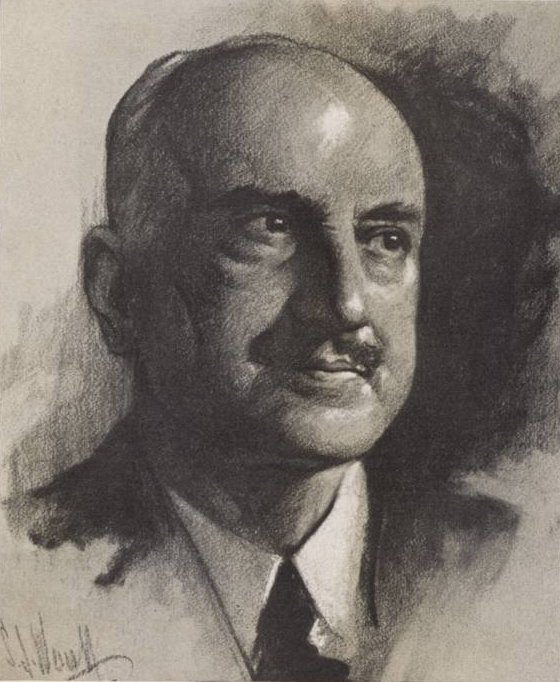
George Santayana
Jorge Agustín Nicolás Ruiz de Santayana y Borrás, known in English as George Santayana (/ˌsæntiˈænə, -ˈɑːnə/;[2] December 16, 1863 – September 26, 1952), was a Spanish-American philosopher, essayist, poet, and novelist. Born in Spain, Santayana was raised and educated in the US from the age of eight and identified himself as an American, although he always retained a valid Spanish passport.[3] At the age of 48, Santayana left his position at Harvard and returned to Europe permanently. His last will was to be buried in the Spanish Pantheon in Rome.
In this Spanish name, the first or paternal surname is Ruiz de Santayana and the second or maternal family name is Borrás.
George Santayana
Santayana is popularly known for aphorisms, such as "Those who cannot remember the past are condemned to repeat it",[4] "Only the dead have seen the end of war",[5] and the definition of beauty as "pleasure objectified".[6] Although an atheist, he treasured the Spanish Catholic values, practices, and worldview in which he was raised.[7] Santayana was a broad-ranging cultural critic spanning many disciplines. He was profoundly influenced by Spinoza's life and thought, and in many respects was a devoted Spinozist.[8]
Early life[edit]
Santayana was born on December 16, 1863, in Calle de San Bernardo of Madrid and spent his early childhood in Ávila, Spain. His mother Josefina Borrás was the daughter of a Spanish official in the Philippines and he was the only child of her second marriage.[9] Josefina Borrás' first husband was George Sturgis, a Bostonian merchant with the Manila firm Russell & Sturgis, with whom she had five children, two of whom died in infancy. She lived in Boston for a few years following her husband's death in 1857; in 1861, she moved with her three surviving children to Madrid. There she encountered Agustín Ruiz de Santayana, an old friend from her years in the Philippines. They married in 1862. A colonial civil servant, Ruiz de Santayana was a painter and minor intellectual. The family lived in Madrid and Ávila, and Jorge was born in Spain in 1863.
In 1869, Josefina Borrás de Santayana returned to Boston with her three Sturgis children, because she had promised her first husband to raise the children in the US. She left the six-year-old Jorge with his father in Spain. Jorge and his father followed her to Boston in 1872. His father, finding neither Boston nor his wife's attitude to his liking, soon returned alone to Ávila, and remained there the rest of his life. Jorge did not see him again until he entered Harvard College and began to take his summer vacations in Spain. Sometime during this period, Jorge's first name was anglicized as George, the English equivalent.
In popular culture[edit]
Santayana's passing is referenced in the lyrics to singer-songwriter Billy Joel's 1989 music single, "We Didn't Start the Fire".[30]
The quote "Only the dead have seen the end of war" is frequently attributed or misattributed to Plato; an early example of this misattribution (if it is indeed misattributed) is found in General Douglas MacArthur's Farewell Speech given to the Corps of Cadets at West Point in 1962.[31][32]